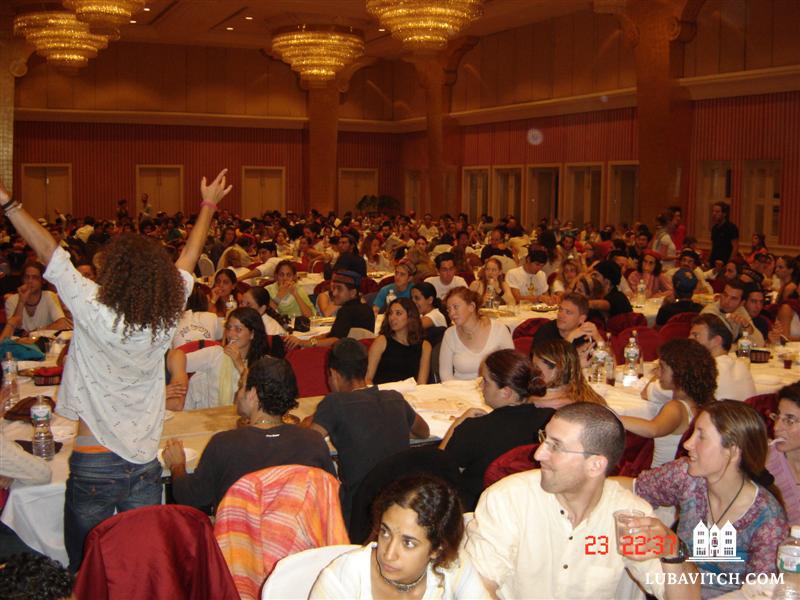As a shipping container full of quantities of matzah, wine, grape juice, kosher-for-Passover food stuffs, hagaddahs and other Passover necessities sits in the cargo hold at port in Calcutta, India, with no word of imminent release, thousands of Israelis and other Jewish visitors traveling in Nepal are concerned. A full-blown strike by Israel’s Foreign Ministry that began Sunday, only weeks away from Passover, now leaves many are wondering if the famous Seders in the Himalayas coordinated by Chabad of Nepal, will be cancelled.
Rabbi Moshe Kotlarsky of Chabad-Lubavitch Headquarters in New York pledged that the Seders will go on as expected. “We are sending rabbinical students as we do every year to assist Rabbi Chezki and Chani Lifshitz, and we are confident that we will find some kind of solution to this crisis so that the Seders will take place as always,” he told lubavitch.com.
Likewise, Chabad representatives to Kathmandu dismissed media reports about Seder cancellations. “Anyone who knows us and the kinds of miracles that we survive on, knows that there’s no way in the world, come Passover, we will not make a Seder for the thousands of Jews who are relying on us,” said Chani.
$40,000 on Hold
Still, the Lifshitzs may need to consider other alternatives. Even if the container holding $40,000 worth of Passover provisions would be released immediately, it will be a close call given the time it would take for it to reach Nepal.
“Two weeks by sea from Calcutta, and two weeks by truck to Nepal. If the container is not released within the next few days, we will have to think about making it happen some other way.” Adding insult to injury, Chabad of Nepal is incurring a fee of $150. for every day that the container continues to sit in the hold.
About 1,500 guests participate at the Largest Seder in The World, as the Chabad Seder in Nepal has been dubbed. Another 800 participate at the one in Pokhara. And for those Jews who didn’t make it to either of those locations—the “Fifth Child” who didn’t think of joining the seder—said Rabbi Lifshitz, Chabad of Nepal hosts another one in remote Manang, at 11,614 feet above sea level. Inaccessible by road, Chabad airlifts Seder provisions and rabbinical students by helicopter.
But that isn’t all. On the second night of Passover, the Lifshitzs host a “small” Seder at the Chabad House for several hundred. Passover is a weeklong holiday when special kosher-for-Passover foods are consumed. The Lifshitzs expect that some 10,000 people will have joined Chabad at any of its locations for at least one meal during the 8-day holiday.
Strike is Another of Many Hurdles
The strike, blamed by the foreign ministry employees on “the draconian decision by the Treasury to cut workers’ salaries,” has paralyzed all activities related to Israel’s foreign ministry and has prompted the postponement of Prime Minister Netanyahu’s planned visit next month to Mexico, Panama and Colombia, as well as Pope Francis’ planned visit to Israel in May.
A statement by the ministry’s workers’ committee made on Sunday, read: “Today, for the first time in Israel’s history, the foreign ministry will be closed and no work will be done in any sphere under the ministry’s authority.”
The inspiration for Kathmandu, a popular Israeli TV series in 2012, the Lifshitzs have been conducting these Seders for the last 10 years. The go-to people for Israeli backpackers who have found a welcoming home, a good meal—nurture for body and soul—so far from home, they have weathered numerous challenges with aplomb.
“If we’d lose our heads whenever there are bumps in the road,” said Chani, laughing, “we wouldn’t manage to live in Nepal and raise a family here where power outages and no running water are frequent and unpredictable occurrences.
“There’s always some crisis. We’ll overcome this one too.”
To contribute to Chabad of Nepal’s Passover Seders, click here.

Be the first to write a comment.